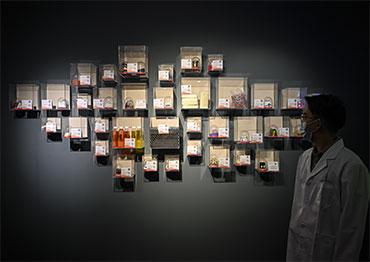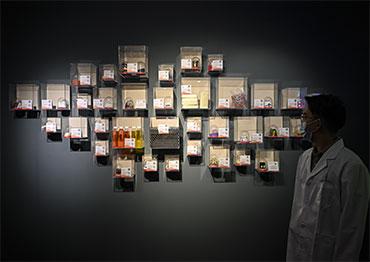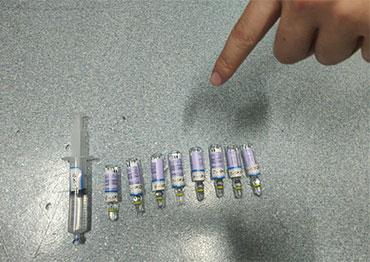In early June, narcotics officers with Mianyang police received a tip on a drug deal. Since the substances were strictly regulated in China, police suspected the case involved trafficking and turned their attention to packages arriving from overseas.
Soon after, customs agents alerted them to a package from Germany addressed to a Mianyang resident surnamed Yi. They traced the address, only to uncover an online underground market of illegal narcotics with customers across the country. To avoid alerting the suspect, the police allowed the package to be delivered.
When Yi went to pick it up on June 23, police were waiting.
Speaking with NewsChina, Sergeant Tian Jianxin of Mianyang city police said Yi is in his 20s and not native to the area. Yi told police he learned about NPS through a WeChat group. Sensing a lucrative business opportunity, Yi found suppliers in Germany and Japan and created multiple WeChat and QQ groups to connect with buyers in China. Before long, Yi and eight others had weaved a web stretching across the country.
By mid-July, police tracked down eight more suspects in Beijing and in the provincial regions of Sichuan, Ningxia, Heilongjiang, Fujian and Jiangxi. They are still awaiting sentencing.
Police raids uncovered vials of sevoflurane and midazolam – both sedatives used for anesthesia – and triazolam, a drug commonly prescribed to treat insomnia. When mixed with alcohol, the drugs can be fatal.
Video footage was discovered on their phones showing multiple cases of rape. The suspects told police they mainly targeted young women they met online or knew through work. They lured them on dates, spiked their drinks, raped them and uploaded the footage on porn sites. Some of them even used the drugs on their unsuspecting spouses and partners.
“The drugs pose multiple threats to victims: they’re highly addictive and an overdose could easily result in memory loss, unconsciousness, trouble breathing and even death,” Tian told NewsChina.
“For instance, people who take a mixture of triazolam and midazolam could experience loss of consciousness and memory for six to eight hours, leaving them vulnerable to sexual assault,” he said.
Chinese authorities classify illegal drugs into three “generations.” First-generation drugs are directly extracted from plants, such as opium, marijuana, cocaine and heroin, while second generation are chemosynthetic, which like crystal meth and ketamine are organic compounds created from simple inorganic reactions.
The third generation, NPS, is closely related to the second, and include highly addictive stimulants and hallucinogenics. However, since their molecular structures can be artificially modified and consumed without injections or smoking, NPS are harder to detect.
“In China, it has been a long time since people first extracted drugs from regulated narcotics and psychotropic substances, but... NPS have become an increasingly serious trend that has been drawing more attention from the public,” Guo Yi, editor-in-chief of People’s Narcotics Control magazine, told NewsChina.
According to “Drug Situation in China,” a paper issued by the National Narcotics Control Commission, law enforcement made over 92,000 drug-related arrests and prosecuted more than 64,000 cases in 2020. The report shows that drug deals are increasingly made online and delivered through courier services. During that year, 3,011 cases involving 4.3 tons of illegal drugs used legitimate delivery services to distribute, a year-on-year increase of 9.4 percent.

 Old Version
Old Version


